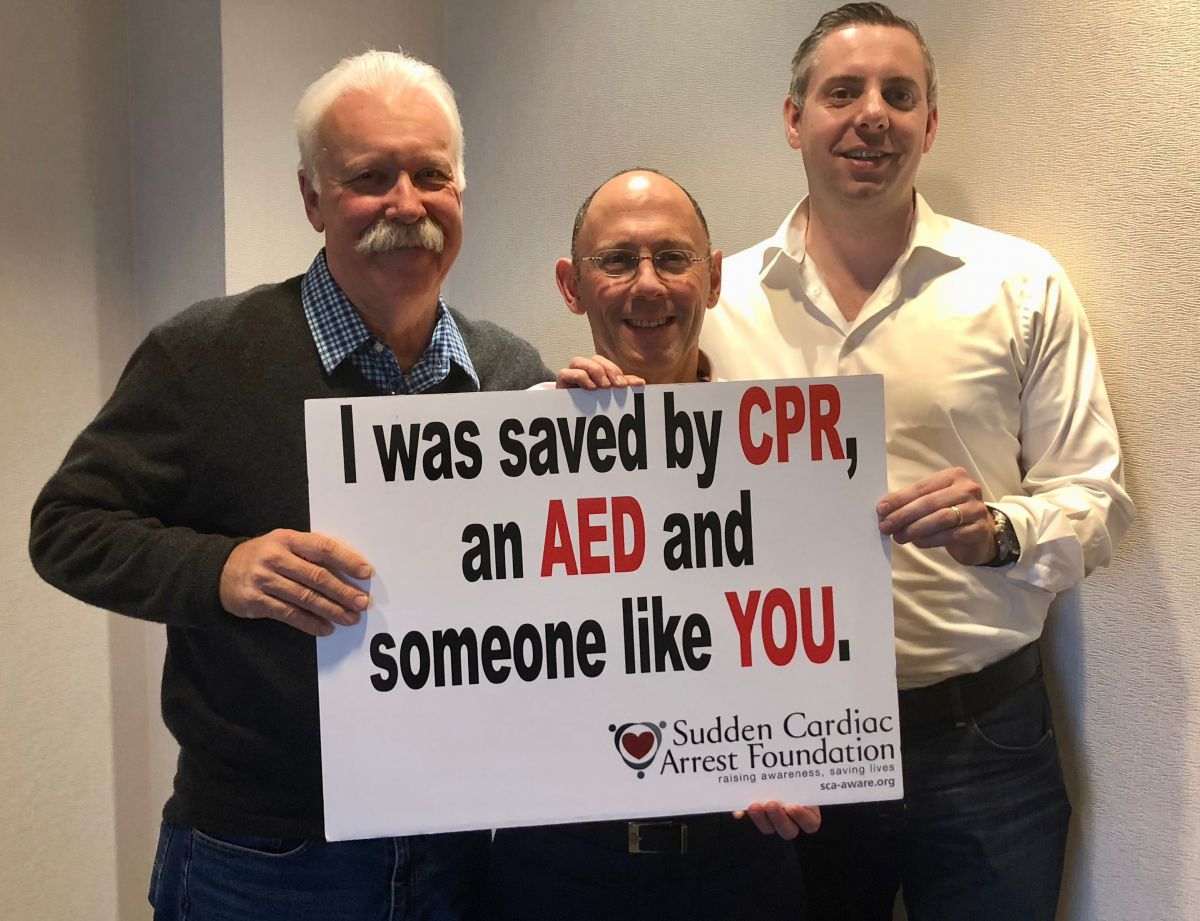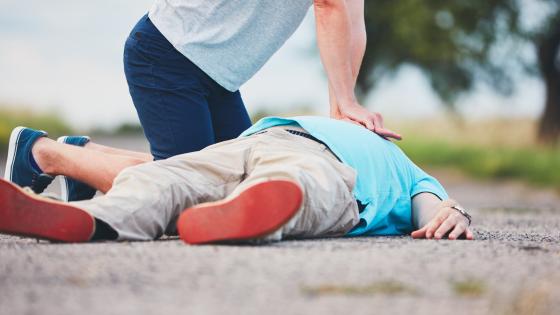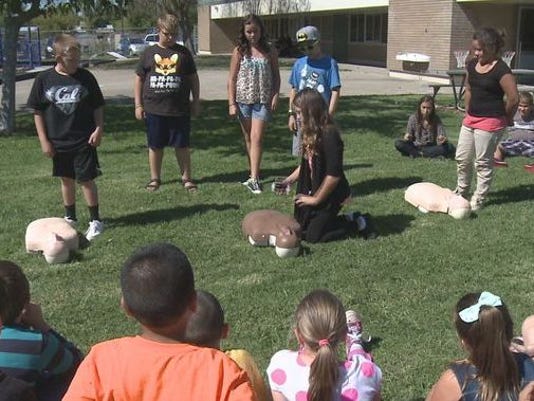Joe Farrell went to retrieve an errant golf ball when he came upon another player on the ground not breathing. The man’s golfing partner was attempting CPR but not performing it properly.
Joe, a physical therapist, took over. He made sure 911 was called before starting chest compressions. Paramedics arrived and revived the man after several shocks from an automated external defibrillator.
“It was absolutely a big moment in my life and a very humbling event,” Joe said.
He thought at the time that if he ever went into cardiac arrest, he hoped to be lucky enough to have someone nearby who could perform CPR on him. He knew CPR, especially if administered quickly, can double or triple a person’s chance of survival.
A year later, Joe was that lucky.
Then 56, Joe was talking with fellow physical therapists during a luncheon when he lost consciousness and stopped breathing.
One of the men called 911 and started chest compressions while Joe’s wife, Edie, also a physical therapist, looked on terrified.
Paramedics quickly arrived with an AED. It took seven shocks to restore Joe’s heart rhythm.
As they were entering the emergency room, Joe’s heart stopped again. The AED again revived him.
Joe was put into an induced coma for three days and underwent hypothermia for 24 hours to minimize any brain damage. Edie feared she would lose her husband of 30 years. Making the situation even more stressful, she felt the cardiologist assigned to them was inattentive. He didn’t even look at her when he spoke.
“I happened to know that the son of a friend was a cardiologist and I begged him to take Joe on as a patient,” Edie said. “He is the one who said that Joe should not be allowed to leave the hospital until he had an ICD.”
The friend’s son indeed took over as the cardiologist and Joe received an ICD, or implantable cardioverter defibrillator. The battery-powered device was placed under Joe’s skin to track his heart rate. If it detects a dangerous heart rhythm, it delivers an electric shock.
Doctors later determined a medication side effect – low potassium – had caused his cardiac arrest.
While recuperating at home, Joe felt secure his ICD would protect him. Still, he feared another cardiac arrest.
He cut back on his work hours to help relieve stress. But what really brought Joe relief was a newfound purpose: spreading the word about cardiac arrest, CPR training and the use of defibrillators.
There are more than 356,000 out-of-hospital cardiac arrests annually in the United States, with nearly 90 percent of them fatal.
Read the full article here: https://www.usnews.com/news/health-news/articles/2019-10-17/aha-news-he-used-cpr-in-an-emergency-ndash-then-he-became-the-emergency



